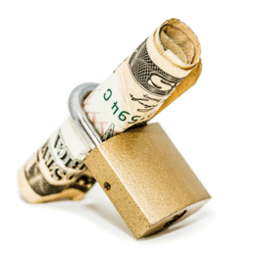
Recent cybersecurity breaches have some rethinking how to protect their money.
Not long after shopping at the Marlton Target on Black Friday, Kristin Smith was shocked to get a call from her bank asking to verify some unusual charges. There were more than $11,000 of charges from China on her card and the bank was performing a courtesy call to confirm they were legit. Fortunately, that stopped the crime in its tracks. But Smith says the incident was still a hassle. For three days, the charges showed up in her account and she waited nervously to ensure they were cleared. Today she’s still getting e-mails saying her credit card was declined for various purchases she didn’t even make. It seems the persistent thief tried to make additional purchases even after the card was canceled.
Though everything with Smith’s case is resolved now, it’s no surprise that she remains nervous and uncertain about the future. And in the wake of not only the Target leak but recent news of additional security breaches, most shoppers are feeling the same way. Cybersecurity is a hot topic and guarding your credit card data is more important than ever.
Steps to protect It’s estimated that as many as 110 million customers may have had their information exposed during the Target hack in which malware was used to steal private information. It’s believed that thieves accessed payment card information during a two-week period that spanned the prime holiday shopping times. Target Corp. has stated that since the hack, they have fully cleared their system of the malware and taken additional steps to protect shoppers. “Since that time, we have taken extra precautions such as limiting or updating access to some of our platforms while the investigation continues,” said Target spokeswoman Molly Snyder in a January statement.
But shoppers remain on edge. Since the news about Target broke, Neiman Marcus Group has come forward stating that as many as 1.1 million of their customers may have been affected by a security breach occurring between July and October 2013.
And just weeks ago, Michaels, the country’s largest arts and crafts chain, also announced possible fraudulent activity. With all of these cybersecurity crimes making mainstream news, it’s no surprise that shoppers are concerned. They feel vulnerable and at risk. Fortunately, the experts say there are some steps you can take to boost the protection of your financial information.
Dr. B. Dike-Anyiam, a computer science and networking lecturer at Burlington County College in Mount Laurel, says paying for transactions in cash instead of cards is one possible solution. While most people have gotten away from carrying cash in this day and age, as these security breaches become more prevalent, shoppers may be reconsidering their payment options.
“You can also switch to credit card providers that use Chip and PIN or request for a card that has Chip and PIN from your current credit card provider if they offer them,” says Dike-Anyiam. “Chip and PIN uses an embedded chip that encodes the information that is being transmitted, plus a PIN is supplied by the customer to complete a transaction. It provides better security than the magnetic strips.”
Chip and PIN works on debit, credit or ATM cards. There is also a difference between using credit versus debit. Daniel Folkinshteyn, Ph.D., assistant professor of finance at Rowan University, says he’d strongly recommend using credit over debit.
“If you have a credit card, your maximum liability for fraudulent charges is $50 as long as you report within 60 days,” he says. “Most card companies even offer zero liability on fraud. When you notice a fraudulent charge, and call to dispute it, it is immediately credited back and you don’t have to pay it.”
But with a debit card, Folkinshteyn says your liability balloons from $50 to $500 if you don’t report it within two days. “Additionally, while you will likely successfully dispute the fraudulent transaction and eventually get your money back, in the meantime, not only is the money gone from your bank account, your other transactions—such as checks written and bill pays scheduled—may bounce back and hit you with various insufficient funds fees.”
Vigilance is key Regardless of what kind of card you use, Dike-Anyiam says vigilance is essential. “Be sure to monitor your credit card activities regularly and promptly report any unusual activities,” she advises.
Neil Chase, vice president of content at LifeLock, an identity theft protection company, says monitoring your personal information on your own is important but working with a company like LifeLock can help you be even more vigilant about monitoring your personal data. “We offer services that let you go ahead and live your life in this increasingly digital world, with the peace of mind that comes from knowing we’re protecting your identity,” he explains. “LifeLock provides identity theft protection services. We monitor your credit and identity-related events with proprietary technology, alerting you to potential fraudulent account openings before identity theft happens. If you become a victim of identity theft, our experts are there to assist you and manage the financial recovery process. LifeLock members receive up to $1 million in services related to recovering financial loss as a result of identity theft.”
In the Target breach, it appears that names and credit card information were the pieces of data leaked—fortunately not sufficient information to open new accounts.
But those kind of breaches are also happening and they’re wreaking havoc on peoples’ lives. “Other breaches have occurred—and will continue to occur—which may enable identity theft, allowing thieves to open new credit accounts in your name and leaving you on the hook for them,” says Folkinshteyn. “While you will eventually be able to get this cleared, it is a painful and drawn out process and you should try to take precautions against this happening.”
Chase suggests shoppers keep a constant eye on credit and debit card activity—looking for any unfamiliar charges. “If you see something that doesn’t look right, contact the card issuer immediately,” he says. “You should also look for new financial accounts opened in your name.”
It’s also important to practice smart online habits, adds Chase. Use complex passwords—particularly for financial services. And be extremely protective of your Social Security number. “Your Social Security number is valuable and can be used in combination with other personal information to commit fraud,” Chase says. “Don’t carry your Social Security card in your wallet. Instead, store it in a safe place.”
Looking ahead Chase says identity theft has been the No. 1 consumer complaint reported to the Federal Trade Commission for more than 13 years. Today, it’s one of the fastest-growing crimes and Chase says the recent high-profile security breaches such as the ones at Target and Neiman Marcus are just part of the problem. “As criminals become more sophisticated and we do more things online and with digital devices, there will certainly be more cases of personal information being misused,” he says.
“If your information is part of a data breach, there’s a much higher likelihood that you will become a victim of identity fraud.”
Since these problems are not going away, take the extra precautions to protect your information. If you suspect that there’s any unusual activity on your account, call your card issuer immediately. The best thing you can do to protect yourself is to be vigilant about monitoring your information.
Published (and copyrighted) in South Jersey Magazine, Volume 10, Issue 11 February, 2014).
For more info on South Jersey Magazine, click here.
To subscribe to South Jersey Magazine, click here.
To advertise in South Jersey Magazine, click here.












